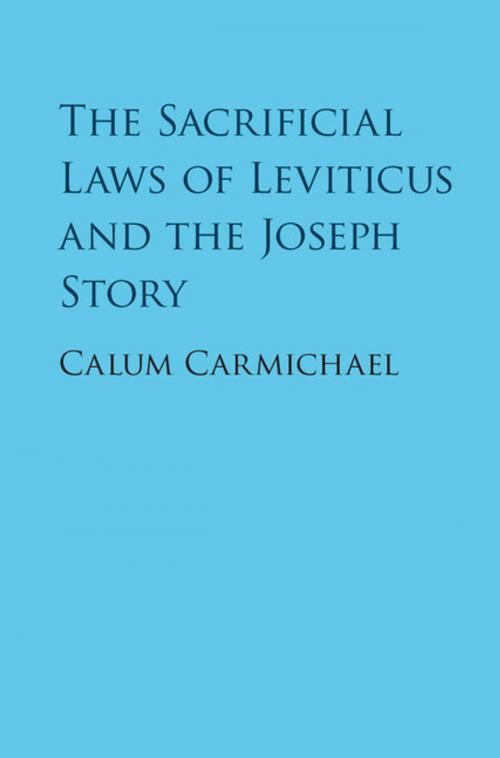The Sacrificial Laws of Leviticus and the Joseph Story
Nonfiction, Religion & Spirituality, Bible & Bible Studies, Study, Old Testament| Author: | Calum Carmichael | ISBN: | 9781108100359 |
| Publisher: | Cambridge University Press | Publication: | August 18, 2017 |
| Imprint: | Cambridge University Press | Language: | English |
| Author: | Calum Carmichael |
| ISBN: | 9781108100359 |
| Publisher: | Cambridge University Press |
| Publication: | August 18, 2017 |
| Imprint: | Cambridge University Press |
| Language: | English |
In this study, Calum Carmichael offers a new assessment of the Joseph story from the perspective of the biblical laws in Leviticus 1-10. These sacrificial laws, he argues, respond to the many problems in the first Israelite family. Understanding how ancient lawgivers thought about Joseph's and his brothers' troubling behavior leads to a greater appreciation of this complicated tale. The study of the laws in Leviticus 1-10 in relation to the Joseph story provides evidence that all biblical laws, over 400, constitute commentary on issues in the biblical narratives. They do not, as commonly thought, directly reflect the societal concerns in ancient Israelite times. Through close reading and analysis, Carmichael reveals how biblical narrators and lawgivers found distinctive and subtle ways of evaluating a single development in a narrative from multiple perspectives. Thus, the sacrificial laws addressing idolatry, keeping silent about a known offense, confessing wrongdoing, and seeking forgiveness become readily understandable when reviewed as responses to the events in the Joseph story.
In this study, Calum Carmichael offers a new assessment of the Joseph story from the perspective of the biblical laws in Leviticus 1-10. These sacrificial laws, he argues, respond to the many problems in the first Israelite family. Understanding how ancient lawgivers thought about Joseph's and his brothers' troubling behavior leads to a greater appreciation of this complicated tale. The study of the laws in Leviticus 1-10 in relation to the Joseph story provides evidence that all biblical laws, over 400, constitute commentary on issues in the biblical narratives. They do not, as commonly thought, directly reflect the societal concerns in ancient Israelite times. Through close reading and analysis, Carmichael reveals how biblical narrators and lawgivers found distinctive and subtle ways of evaluating a single development in a narrative from multiple perspectives. Thus, the sacrificial laws addressing idolatry, keeping silent about a known offense, confessing wrongdoing, and seeking forgiveness become readily understandable when reviewed as responses to the events in the Joseph story.















